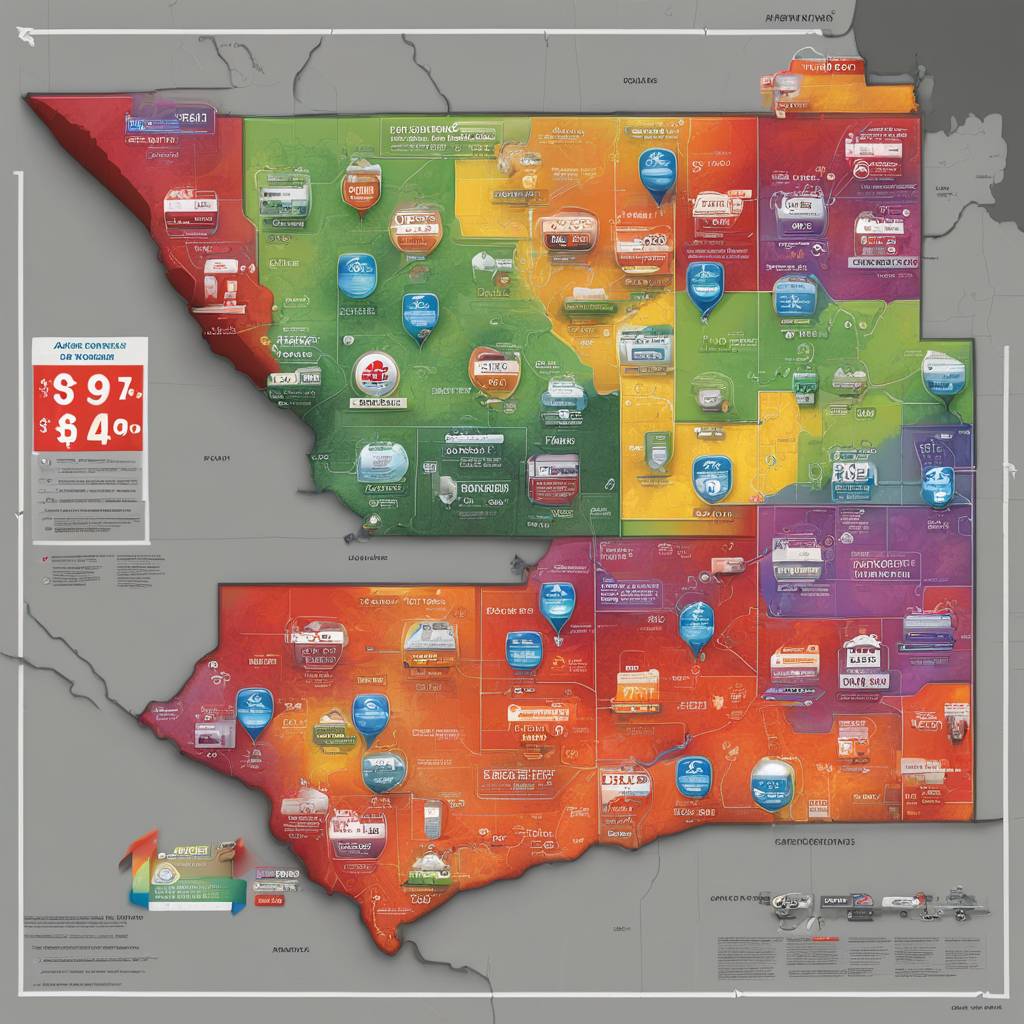Gas prices are on the rise in Alberta just days before an increase in the provincial gas tax. The increase in prices is attributed to a combination of factors, including increased demand as Canadians begin to travel more, transition to cleaner and more expensive gasoline blends for the summer driving season, and refinery maintenance. These factors typically lead to an increase in gas prices from February through April and May. Additionally, the wholesale price of fuel can vary depending on when gas stations purchase it, with rural stations potentially seeing larger price fluctuations.
As of April 1, the Alberta government will raise its fuel tax by four cents, bringing the total tax up to 13 cents a litre. The price of WTI oil, which influences the fuel tax rate in Alberta, is currently below the benchmark set by the government. Under the province’s affordability measures, the average price of West Texas Intermediate for the preceding trading days will determine the amount of fuel taxes Albertans have to pay. The program is reviewed quarterly, with varying tax rates based on the price of WTI oil.
Alberta Minister of Finance Nate Horner noted that Alberta’s average gas price is around $1.44, still among the lowest in Canada. Despite the upcoming tax increase, the government believes in the WTI linkage and hopes to provide relief to consumers as summer approaches. However, the province acknowledges that high oil prices often translate to high fuel prices and that relief may not be immediate. The federal carbon tax is also set to increase on April 1, adding to the overall cost of gasoline for consumers.
Gas prices typically peak in April or May as refineries complete maintenance, but relief could come after the May long weekend. However, with the transition to higher carbon taxes, it is unlikely that gas prices will return to levels below $1. De Haan, an expert in petroleum analysis, does not anticipate gas prices reaching the nearly $1.90 peak seen in 2022. He advises drivers to be efficient and aware of their fuel consumption to mitigate the impact of rising gas prices. While prices may exceed last year’s peak of $1.46 per litre, he does not expect them to surpass $1.60.
Overall, gas prices in Alberta are rising due to increased demand, transition to summer gasoline blends, and refinery maintenance, exacerbated by the impending gas tax increase and federal carbon tax hike. Despite the government’s efforts to provide relief to consumers through the WTI linkage program, drivers may not see immediate reductions in gas prices. It is recommended for consumers to be mindful of their fuel consumption and drive efficiently to mitigate the impact of rising gas prices, which are expected to peak in April or May before potentially stabilizing.


